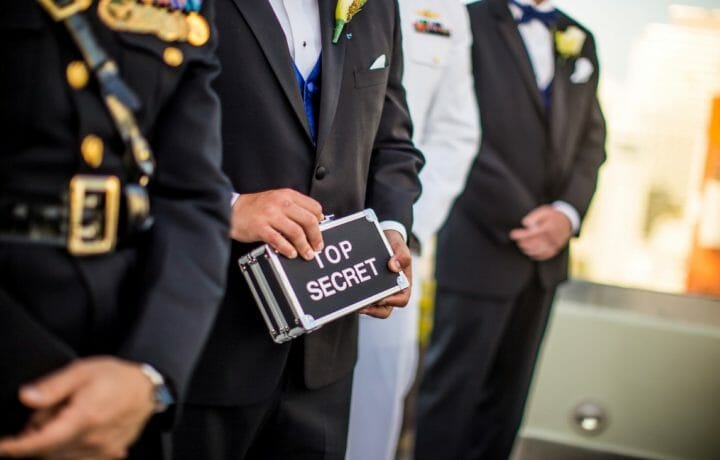Do you lose your right to free speech when you obtain a security clearance? No. But does Uncle Sam impose certain restrictions to what cleared professionals can say publicly? Absolutely.
The topic is all over the news of late, with the planned September 11 release of a new book about the killing of Osama bin Ladin, written by a former Navy Seal under the pen name Mark Owen. The issue with the book is less about what it’s likely to disclose (details of the raid have already been leaked to Hollywood for the production of the movie Zero Dark Thirty – with everyone from the White House to the intelligence community accused of contributing), and more about policy surrounding military personnel and government employees, and what they can and can’t say.
Government officials – even those in highly sensitive positions – are fully within their rights to publish books or talk about certain aspects of their work. Nondisclosure agreements required of all security-cleared personnel outline the limits to discussion or dissemination of classified information, as well as the consequences of leaking classified information.
Those with access to Sensitive Compartmented Information (SCI) sign an additional nondisclosure agreement, one which specifically addresses the issue of written works, including a work of fiction, where an individual discusses his or her official duties as they relate to SCI. In such cases an individual is required to submit their written work to the agency which granted the security clearance, and hold publication until written authorization is received.
In the case of ‘No Easy Day,’ the book written about the bin Ladin raid, Owen’s lawyers claim no classified information was revealed and the information included does not fall under the purview of the nondisclosure agreements. It’s likely a legal stretch, and the Department of Defense continues to push back, saying in a statement:
"In the judgment of the Department of Defense, you are in material breach and violation of the nondisclosure agreements you signed. Further public dissemination of your book will aggravate your breach and violation of your agreements.”
What’s the average cleared professional to do? The reality is, few cleared professionals will have the access or capacity to have a memoir of their times in government service published. Nondisclosure agreements – in both the government and private companies – are designed to protect trade secrets and national security secrets from being revealed. As many other authors have found, nondisclosure agreements don’t prevent a book’s publication, and there is a dialogue concerning information the government would like excluded. Delays were likely a key reason to avoid a Department of Defense review in the case of ‘No Easy Day,’ and authors shouldn’t expect the government to offer a quick turn-around for a publication review.
Day-to-day, nondisclosure agreements serve an important purpose. In an era of increasing internet usage, and increasingly porous information, maintaining accountability and respect for classified materials is critical. Those with access to classified information sign legal statements acknowledging the importance of preventing leaks, and preventing unauthorized disclosures. When in doubt, it’s best to seek out an agency review before revealing anything in a public forum.
Lindy Kyzer is the editor of ClearanceJobs.com. She loves cybersecurity, social media, and the U.S. military. Have a conference, tip, or story idea to share? Email editor@clearancejobs.com.



